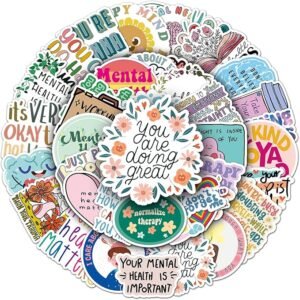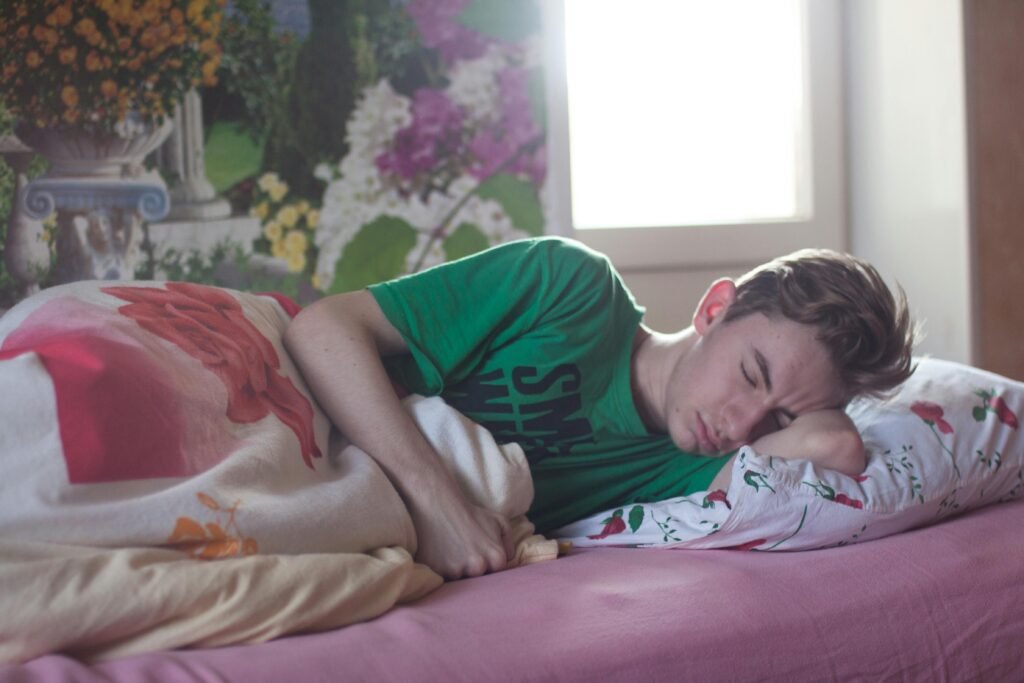World Mental Health Day: Let’s Talk About the Mind We All Share
Every year, World Mental Health Day reminds us of one powerful truth — there is no health without mental health.
While the world races toward innovation, money, and success, millions silently battle anxiety, depression, burnout, and emotional exhaustion. Yet, only a few dare to speak about it.
This year’s message is simple but revolutionary: “Mental health is a universal human right.”
🧠 What Is Mental Health, Really?
Mental health isn’t just about “not being depressed.”
It’s about how we think, feel, and act — how we handle stress, relate to others, and make choices every day.
From waking up in the morning to facing the chaos of life, our mind is constantly at work.
A healthy mind helps us:
-
Stay focused and creative
-
Build strong relationships
-
Handle challenges without breaking down
-
Find meaning and joy in small things
Poor mental health, on the other hand, can slowly dim the light inside us — making even simple tasks feel impossible.
🌿 Why Mental Health Awareness Matters More Than Ever
In a world where social media filters perfection and success, authentic emotions are fading into silence.
People are smiling online but crying in private.
Mental health awareness breaks this silence.
According to the World Health Organization:
-
More than 970 million people globally live with mental disorders.
-
Depression is one of the leading causes of disability worldwide.
-
Suicide claims over 700,000 lives every year — one every 40 seconds.
Yet, the stigma still exists. Many fear being judged or misunderstood if they ask for help.
Awareness saves lives.
Talking openly about mental health encourages others to seek help before it’s too late.
💬 Common Mental Health Challenges in Today’s World
1. Anxiety Disorders
Anxiety has become one of the most common mental health struggles. It’s more than nervousness — it’s a constant state of overthinking, fear, and physical tension.
Symptoms may include:
-
Racing heart or shortness of breath
-
Restlessness or irritability
-
Difficulty concentrating
-
Trouble sleeping
2. Depression
Depression isn’t just sadness — it’s emptiness, fatigue, and loss of interest in life.
People often smile while suffering silently. The danger lies in how invisible it can be.
3. Burnout
Work pressure, financial stress, and digital overload are draining energy faster than ever. Burnout is now a global epidemic — affecting not just corporate workers but students, parents, and caregivers too.
4. Loneliness
Despite living in a hyper-connected world, loneliness is rising.
Studies show that loneliness can be as harmful to your body as smoking 15 cigarettes a day.
🌈 How to Protect Your Mental Health Daily
Mental health care isn’t a luxury—it’s survival.
Here are small, science-backed steps that make a real difference:
💧 1. Take a Digital Detox
Your mind needs silence as much as your phone needs charging.
Unplug for a few hours daily. Go for a walk, cook, read, or just sit without scrolling.
🫶 2. Talk to Someone
You don’t need to have the “right words.”
Sometimes, saying “I’m not okay” is enough.
Reach out to a trusted friend, family member, or therapist. Speaking up breaks the cycle of isolation.
🧍 3. Move Your Body
Exercise releases endorphins — your brain’s natural antidepressants.
Even 20 minutes of walking or dancing can lift your mood.
☀️ 4. Get Sunlight and Sleep
A simple but powerful combination.
Vitamin D from sunlight boosts mood, while good sleep restores emotional balance.
🧘 5. Practice Mindfulness
Meditation, deep breathing, or journaling can help calm your thoughts.
Mindfulness trains the brain to live in the present moment instead of replaying fears or regrets.
💚 6. Seek Professional Help
There is no shame in therapy.
Just like we see doctors for our body, therapists help us heal our mind.
Support is strength — not weakness.
💭 The Role of Society and Community
Mental health isn’t just an individual issue; it’s a collective responsibility.
Communities, schools, and workplaces must build safe spaces where people feel supported, not judged.
Employers can introduce mental health days, counseling services, and flexible work hours.
Teachers can include emotional education in classrooms.
Friends can check in without waiting for a crisis.
Together, we can build a culture where it’s okay to not be okay.
🌺 Myths vs. Facts About Mental Health
| Myth | Fact |
|---|---|
| Only “crazy” people need therapy. | Everyone can benefit from therapy — it’s a form of self-care. |
| Mental illness is rare. | Nearly 1 in 4 people will experience it at some point in life. |
| Strong people don’t get depressed. | Depression doesn’t discriminate; it affects anyone. |
| Talking about suicide encourages it. | Open discussion actually helps prevent suicide by creating awareness. |
💡 Inspiring Global Movements
Across the globe, campaigns like #EndTheStigma, #ItsOkayToTalk, and #BellLetsTalk are sparking conversations online.
Celebrities, athletes, and influencers are opening up about their struggles — proving that vulnerability can be powerful.
These movements remind us that mental health awareness isn’t just for one day — it’s a lifelong commitment.
🌍 What You Can Do This World Mental Health Day
-
Wear green, the color of mental health awareness.
-
Share your story — someone may find hope in your words.
-
Educate yourself and others about mental health disorders.
-
Support organizations working for mental health causes.
-
Listen without judging. Sometimes, a kind ear is all someone needs.
❤️ Final Message
Your mind deserves kindness.
You don’t have to fight alone.
Each time you talk about mental health, you give someone else the courage to do the same.
Let’s make this World Mental Health Day not just a reminder — but a revolution of empathy, awareness, and healing.
Because when we care for our mind, we heal the world.



